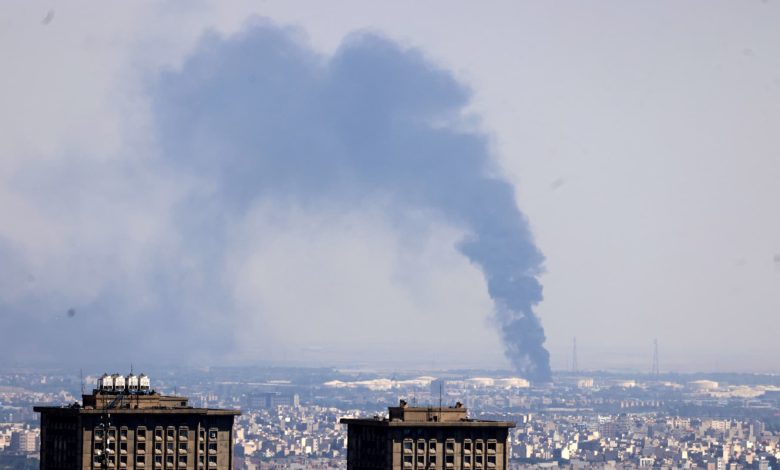Analysts scratching their heads over Isreal-Iran conflict

Smoke billows in the distance from an oil refinery following an Israeli strike on the Iranian capital Tehran on June 17, 2025.
Atta Kenare | Afp | Getty Images
Analysts are struggling to predict the extent to which Israel and Iran’s escalating conflict could influence oil prices.
Israel’s surprise attack on Iran’s military and nuclear infrastructure on Friday has been followed by five days of spiraling warfare between the regional foes. U.S. President Donald Trump on Tuesday called for an “unconditional surrender” from Tehran, warning Washington’s patience was wearing thin.
Energy markets are weighing the likelihood of direct U.S. involvement in the conflict, as well as the potential for major supply disruptions — particularly worst-case scenarios, such as Iran blocking the highly strategic Strait of Hormuz that links the Persian Gulf to the Gulf of Oman.
John Evans, an analyst at oil broker PVM, said Wednesday that a “blanket of unease” had descended upon oil markets in recent days.
“Our market is settling into a world where missile exchanges are commonplace but the cynicism of it being normal has yet to set in because of how easily the situation could escalate,” Evans said in a research note.
Iran’s ongoing retaliatory attacks with ballistic missiles towards Israel are seen from Tel Aviv, Israel on June 17, 2025. Iran has resumed ballistic missile operations in response to Israeli attacks.
Anadolu | Anadolu | Getty Images
Israel’s Bazan oil refinery complex sustained damage from an Iranian attack earlier this week, while an Israeli airstrike at the South Pars field, the world’s largest gas field, prompted Tehran to partially suspend production. The South Pars gas field is shared between Iran and Qatar.
“The situation is as fluid as the underlying commodity it mostly affects and while there is a fraternal ‘your guess is [as] good as mine’ in future price divination, positioning will continue to be at least defensively long,” PVM’s Evans said.
The chief executives of oil companies of TotalEnergies, Shell, and EnQuest told CNBC on Tuesday that further attacks on critical energy infrastructure could have serious consequences for global supply and prices.
‘It is a roulette’
Oil prices, which have jumped in recent days, extended gains on Wednesday.
International benchmark Brent crude futures with August delivery stood 0.5% higher at $76.79 per barrel at 12:32 p.m. London time. U.S. West Texas Intermediate futures with July delivery traded up 0.5% at $75.19 per barrel.
Per Lekander, founder of investment management firm Clean Energy Transition, described the situation for oil markets ahead of Israel’s attack on Iran last week as “bad,” given plentiful supply growth from OPEC and non-OPEC producers and soft demand.
“I was increasingly convinced we were heading for a 2014/2020 reset lower to $30-50 to get capex down and start a new cycle. In fact, the current conflict makes that outcome even more likely when [the] conflict is over as producers are now producing and hedging as much as they can,” Lekander said in a note.
“While this is going on it is a roulette. We have a $10 [per barrel] risk premium in the price which is fair given that there clearly are some interruptions (mainly Iran exports and some lower tanker loadings),” he added.
What next for oil prices?
Looking ahead, Stephen Schork, editor of The Schork Report, on Wednesday said that a significant escalation in the Israel-Iran conflict could push oil prices substantially higher.
“We’re kind of stabilizing right now. I think we’re waiting for that next headline to come out and really, I think that anyone who does not think oil could go higher, I really think they are trading on hope and not reality,” Schork told CNBC’s “Access Middle East.”
“We are now facing the biggest threat to the oil markets since Iraq invaded Kuwait in 1990 and perhaps even greater than the 1974 Arab oil embargo,” he added.
Schork said there was a roughly 5% chance of oil prices climbing to above $103 per barrel within the next five weeks, with much longer odds of crude soaring as high as $160 per barrel by the end of summer, if flows out of the Persian Gulf are seriously disrupted.



